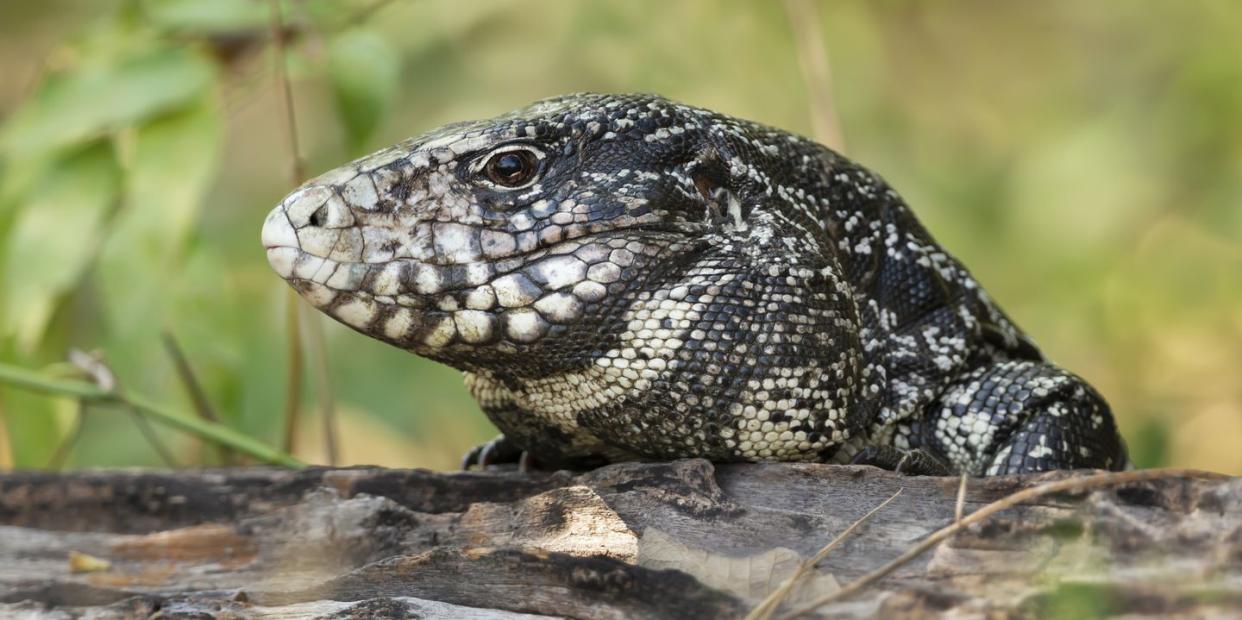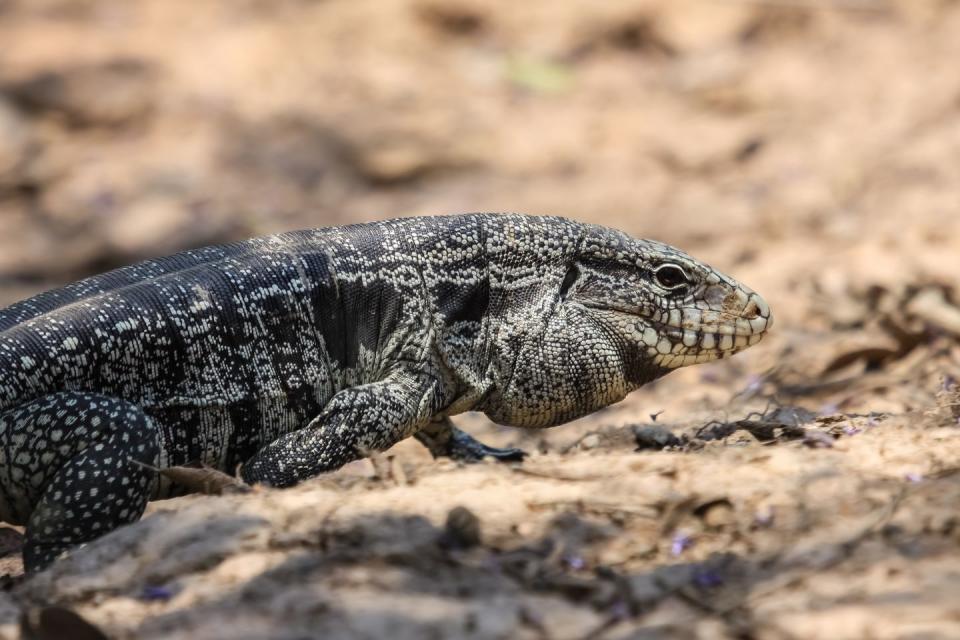These Exotic 4-Foot-Long Lizards “Eat Anything They Want,” and They’ve Invaded Georgia

Exotic tegu lizards, native to South America, have become established in two Georgia counties, officials say.
Tegus have been documented eating protected reptiles and eggs from ground-nesting birds, causing damage to native wildlife.
Tegus are not typically aggressive toward humans or pets, but local officials urge residents to make reports of any sightings.
Massive Argentine black and white tegu lizards are threatening the native and protected species in Toombs and Tattnall counties in Georgia, creating a big concern for wildlife officials.
Hailing from South America, the invasive species can grow up to a whopping 4 feet long, pack 10 pounds or more, are quick on their feet, and will “eat just about anything they want,” says John Jensen, a senior wildlife biologist with the Georgia Department of Natural Resources (GDNR) in a video. Officials aren’t sure how the tegu got to Georgia, but suspect they “originated with captive animals that either escaped or were released.”
They’re known to eat everything from bird eggs (like quail or turkey) to fellow reptiles, including protected state species like American alligators and gopher tortoises, according to the GDNR. The tegu lizards also enjoy eating gopher tortoise eggs and taking over their hideouts. As a burrowing species, tegus can create their own dugouts, but have a habit of taking over already-made tortoise burrows, displacing the shelled reptile to find a new home elsewhere.

Do Argentine tegu lizards harm people?
Actually, officials say people have been keeping tegu lizards at home as pets (and are legally able to do so in Georgia). However, releasing the exotic species into the wild if they, for example, get too big is a huge issue and is also illegal. “Releasing it into the wild is the absolute worst thing to do,” Jensen says. “It will affect our native species, and we can’t have that.”
The GDNR says the black-and-white lizard isn’t known to be aggressive toward humans or pets. But if they feel threatened, like any species, they will “defend themselves” by utilizing their claws, sharp teeth, or tails as a whip.
Could the tegu lizards spread to other parts of the U.S.?
It’s possible, the GDNR says. They’re more tolerant to the cold and hibernate during the winter, which boosts their chances of survival.
Plus, this isn’t the first time the tegu lizard has made headlines. It has also bred and impacted wildlife in multiple counties in Florida, according to the Florida Fish and Wildlife Conservation Commission. “There is scientific evidence suggesting tegus could spread even to other parts of the southeastern U.S.,” the GDNR states.
What should you do if you see a tegu lizard in the wild?
People who live in Georgia should report a tegu sighting (snap a photo if possible!), even if it is dead. It will help biologists figure out how to distribute trapping cages geographically.
If you spot one on your private property, the GDNR says residents are allowed to humanely dispatch of the tegus, “using legal methods in accordance with local ordinances, animal cruelty laws, and safety precautions.”
How can I keep tegu lizards away from my home?
There are several steps the GDNR recommends taking to avoid attracting tegus:
Keep pet food inside your house: Additionally, any food scraps like chicken eggs, fruits, and veggies should be disposed of properly and often since tegus are known to consume these items.
Fill holes in or near your yard: This way, you won’t lure a tegu to a burrow it can reside in.
Tidy up: This burrowing species also likes to “go under” by hiding under piles of debris or brush piles. Keep up with basic landscaping to avoid giving it a home.
Support from readers like you helps us do our best work. Go here to subscribe to Prevention and get 12 FREE gifts. And sign up for our FREE newsletter here for daily health, nutrition, and fitness advice.
You Might Also Like

